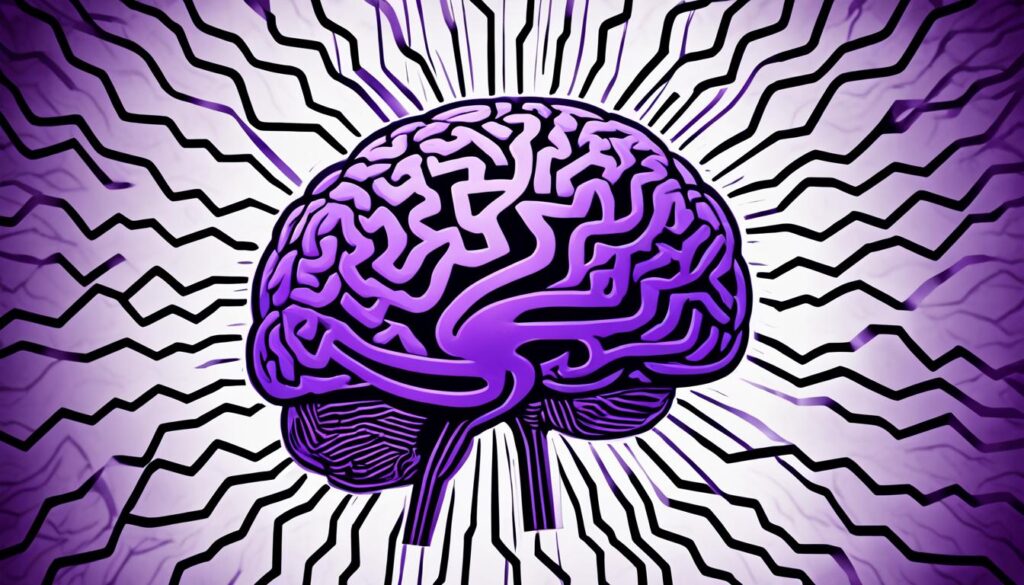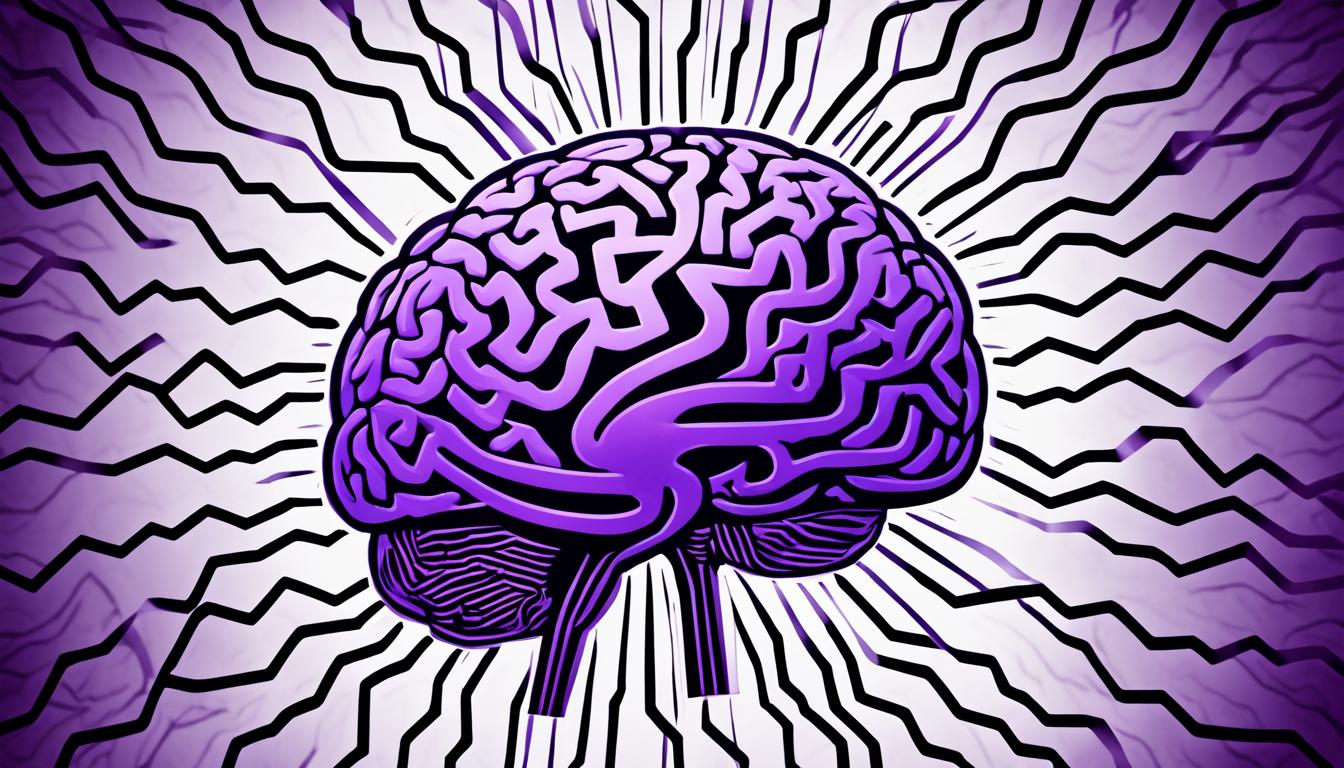Can Multiple Sclerosis Cause Headaches?
 February 26, 2024 | Multiple Sclerosis
February 26, 2024 | Multiple Sclerosis
Can Multiple Sclerosis Cause Headaches?
If you’re navigating the complexities of multiple sclerosis (MS), you might have experienced the gnawing uncertainty about whether those persistent headaches are just another byproduct of your busy lifestyle or if they could be symptomatic of your condition. It’s not uncommon for you to wrestle with various symptoms of MS headaches, which can range from dull throbs to full-blown migraines. But the truth is, you’re not alone. Headaches in multiple sclerosis aren’t merely coincidental; they’re a prevalent issue that can tell us more about the condition itself.
The realm of MS and headaches is one that has been shrouded in ambiguity for years. Yet, recent medical revelations have peeled back the layers, showing us that multiple sclerosis headaches aren’t just a side issue, but a real and significant symptom of MS. This revelation is changing the way we look at the disease and how we approach its treatment.

Table of Contents
- Key Takeaways
- The Relationship Between Multiple Sclerosis and Headache Prevalence
- Can Multiple Sclerosis Cause Headaches?
- Identifying and Describing MS-Related Headaches
- Conclusion
- Frequently Asked Questions
Key Takeaways
- Multiple sclerosis can be a direct cause of headaches, influencing diagnostics and treatment.
- Recognizing various headache types is crucial for MS patients in identifying their symptoms.
- Recent findings suggest a pathophysiological link between MS and headaches, affecting early diagnosis.
- Migraines, particularly, are often associated with MS and its clinical manifestations.
- Immunomodulatory therapy may be a key to addressing MS-related headaches effectively.
- Understanding the types and triggers of headaches can aid in managing MS symptoms holistically.
The Relationship Between Multiple Sclerosis and Headache Prevalence
If you’re living with multiple sclerosis (MS), you might be all too familiar with the throbbing, aching, and sometimes debilitating headaches that seem to accompany the condition. It’s not uncommon for headache prevalence in MS patients to reach alarming rates, with some studies showing up to 70% experiencing these painful episodes. What’s more, the complex interplay between MS and headaches, particularly in terms of symptom management, persists as a challenge in medical circles.
Understanding Multiple Sclerosis and Its Impact on the Nervous System
Multiple sclerosis attacks the nervous system, causing motor and sensory impairments that can drastically affect day-to-day life. The exacerbation of these neurologic deficits is frequently accompanied by various forms of headaches, complicating treatment approaches for MS. Strategies for treating headaches with multiple sclerosis often intersect with the broader management plans for the disease itself.
The Rise in Headaches Among MS Patients: A Historical Perspective
Over the years, the narrative has shifted from headaches being a rare MS symptom to a recognized, frequent complaint. Managing MS headaches has become an integrated part of disease treatment, where healthcare providers seek to alleviate the additional burden they place on patients. This change in perspective is critical as it has influenced the reclassification and treatment timing in certain MS cases.
The Significance of Cerebral Meningeal Inflammation in MS Headaches
In unraveling the ms headache causes, recent findings suggest a link with cerebral meningeal inflammation. The implications of this are far-reaching, affecting the treatment for MS headaches, particularly when considering the stage of the disease. For headache relief for multiple sclerosis patients, understanding the root cause is pivotal in developing effective management strategies.
Ultimately, symptoms of multiple sclerosis headaches emerge as a key piece of the MS puzzle, both for patients grappling with daily pain and for the medical community’s ongoing quest to provide comprehensive care. If you face the challenge of managing MS headaches, remember that new research and therapeutic advances continually offer hope and improvement for your condition.
Can Multiple Sclerosis Cause Headaches?
If you’re coping with multiple sclerosis (MS), you might also be familiar with the unwelcome companion that often accompanies this condition: headaches. Understanding how to seek headache relief for multiple sclerosis is crucial, as headaches can be more than a mere annoyance—they may serve as an indicator of disease activity.
Dealing with these headaches is no simple task; they differ from individual to individual, varying in intensity and frequency. However, by recognizing the hallmarks of headaches in multiple sclerosis, you can begin to determine the most suitable management strategies for your situation.

- Identify the type of headache you experience: Whether it’s migraine-like symptoms or tension headaches, proper diagnosis is critical.
- Keep a headache diary: Note what you were doing, eating, or experiencing before a headache started. This could help pinpoint possible triggers.
- Consider preventative measures: Regular exercise, a healthy diet, and enough sleep can minimize the likelihood of a headache.
- Understand the role of stress: Stress is a common trigger for headaches and learning stress management techniques can be particularly effective.
- Explore medication options: Some medications prescribed for MS may inadvertently worsen headaches. Consult with your health care provider to balance your medication needs.
- Adjust your environment: As bright lights and loud noises may trigger headaches, making changes to your surroundings could help.
- Seek support: Don’t suffer in silence. Joining a support group or therapy can give you resources and help you manage the mental and emotional challenges of MS-related headaches.
While managing headaches with multiple sclerosis can be complex, remember that various approaches can provide relief. It’s a journey—but it’s one on which you don’t have to embark alone. Health professionals, support networks, and patient advocacy groups can offer guidance tailored to your distinct experiences with MS.
Identifying and Describing MS-Related Headaches
When it comes to managing headaches with multiple sclerosis (MS), understanding the types and triggers of headaches can lead to more effective treatment strategies. Migraines, in particular, are a notable symptom that affects a significant portion of the MS community, often accompanying other neurological symptoms. Being able to correctly identify symptoms of multiple sclerosis headaches is crucial in achieving headache relief for multiple sclerosis patients.
Migraine as a Common Symptom in MS: Frequency and Characteristics
Migraines often top the list of headaches associated with MS and may signal the disease’s onset. If you’re experiencing migraines, you might notice symptoms that are remarkably similar to standard migraines, such as prolonged pain, sensitivity to light and sound, and at times, aura effects. However, in the context of MS, these migraines can be indicators of underlying neurological changes, which may include the presence of lesions in the brain.
Types of Headaches Associated with Multiple Sclerosis
While migraines with aura or without aura are frequently reported among MS patients, other headaches like tension-type and cluster headaches are also part of the spectrum. It’s not uncommon for patients to experience a co-occurrence of different headache types, which can complicate treatment for MS headaches. Adding to the challenge, primary headaches like trigeminal neuralgia may also present themselves, particularly as MS progresses.
Triggers and Modifying Factors Affecting MS Headaches
For individuals living with MS, various triggers have been identified that can impact headache severity and frequency. The complexity of treating headaches with multiple sclerosis is understanding and managing these triggers, which can range from stress and fatigue to sensory stimuli. Paying close attention to these factors is a key aspect of managing MS headaches, as they offer insights that can help mitigate the onset of pain and improve overall wellbeing.

The road to headache relief for multiple sclerosis patients is intertwined with careful monitoring and a proactive approach to treatment. With headaches and multiple sclerosis often walking hand-in-hand, it becomes essential to understand how to effectively manage these symptoms to maintain a better quality of life.
Conclusion
Living with multiple sclerosis (MS) brings many challenges, but managing headaches with multiple sclerosis can often add an additional layer of complexity to your daily life. The interplay between MS and severe headaches, notably migraines, can be a major disruptor, demanding significant rest and unfortunately leading to a reduction in day-to-day activities. The key to mitigating this disruption lies in effective headache relief for multiple sclerosis patients, which not only eases discomfort but also lends a semblance of control over one’s life.
Assessing the Impact of Headaches on Quality of Life for MS Patients
Headaches are more than just a mere inconvenience; for those with MS, they symbolize a symptom with profound influence, capable of dictating the pace of one’s existence. By requiring adjustments such as curtailing work or leisure, headaches indeed have a tangible impact on the quality of life. Therefore, understanding and addressing the symptoms of multiple sclerosis headaches should be an integral part of your care plan. Comprehensive management strategies that can offer multiple sclerosis headache relief are imperative for improving your overall wellbeing.
Future Directions in Understanding and Treating MS-Related Headaches
The pursuit for enhanced treatment for MS headaches is incessant. The intricacies of MS-related headaches, particularly migraines, beckon further research to elucidate pathophysiological connections and refine treatment approaches. As medical professionals explore links between brain lesions, inflammation, and autoimmune responses, personalized therapy plans emerge as a beacon of hope for those afflicted. A deeper comprehension of these headaches, specifically within the context of MS, may greatly enhance not just clinical outcomes but your personal journey with this condition as well.
Frequently Asked Questions
Can Multiple Sclerosis Cause Headaches?
Yes, headaches, including migraine headaches, are increasingly recognized as both a symptom and a comorbidity of multiple sclerosis(MS). Studies show a high prevalence of headaches in MS patients compared to the general population.
How Significant is the Relationship Between Multiple Sclerosis and Headache Prevalence?
The relationship is quite significant, with various studies citing headache prevalence rates ranging up to 70% among people with MS. Headaches can often be an indicator of disease activity, especially during exacerbations.
What Role Does Cerebral Meningeal Inflammation Play in MS Headaches?
Cerebral meningeal inflammation, evidenced by lymphoid follicle-like structures in the brains of MS patients, may contribute to the frequency and severity of headaches, particularly migraines, within this population.
What Types of Headaches are Associated with Multiple Sclerosis?
People with MS may experience various types of headaches, the most common being migraine, followed by tension-type headaches and, less frequently, cluster headaches.
How Can Headaches Impact the Quality of Life for MS Patients?
Headaches significantly affect patients with MS by reducing their ability to perform daily activities and by worsening their overall quality of life. Effective management of these headaches is essential to alleviate their impact.
What Are Some Common Triggers for MS-Related Headaches?
Triggers can include stress, fatigue, specific sensory stimuli, hormonal fluctuations, and certain foods. Recognizing and managing these triggers can play an important role in controlling MS-related headaches.
How Are MS-Related Headaches Typically Described?
Symptoms of MS headaches can manifest as throbbing, pulsating, stabbing, or dull constrictive sensations. Migrainous headaches may include nausea, vomiting, photophobia, and phonophobia.
What Are the Treatment Options for Headaches in Multiple Sclerosis?
Treatment options may involve abortive medications for immediate relief, preventive therapies to reduce the frequency of headaches, and lifestyle changes. Disease-modifying therapies for MS may also influence headache management strategies.
Can Migraines Be an Initial Clinical Feature of Multiple Sclerosis?
Yes, migraines can be one of the initial clinical features of MS for some individuals and are often correlated with the presence of cortical or brainstem lesions.
What Future Directions Are Being Considered in Understanding and Treating MS-Related Headaches?
Ongoing research aims to better understand the pathophysiology linking MS and headaches and to develop more personalized and effective treatment plans to improve patient outcomes and quality of life.

Hi there. I’m Angela…and I live daily with chronic illness. For the longest time, I suffered in silence for fear of being judged or criticized. When I finally started opening up, I realized that I’m not alone in all of this and if you have a chronic illness, neither are you!
ABOUT

Hey there! I'm Angela,
I am a survivor of cancer, lupus, fibromyalgia, and a teenage daughter. Join me as I document my experiences and educate the world on my chronic illness journey.


